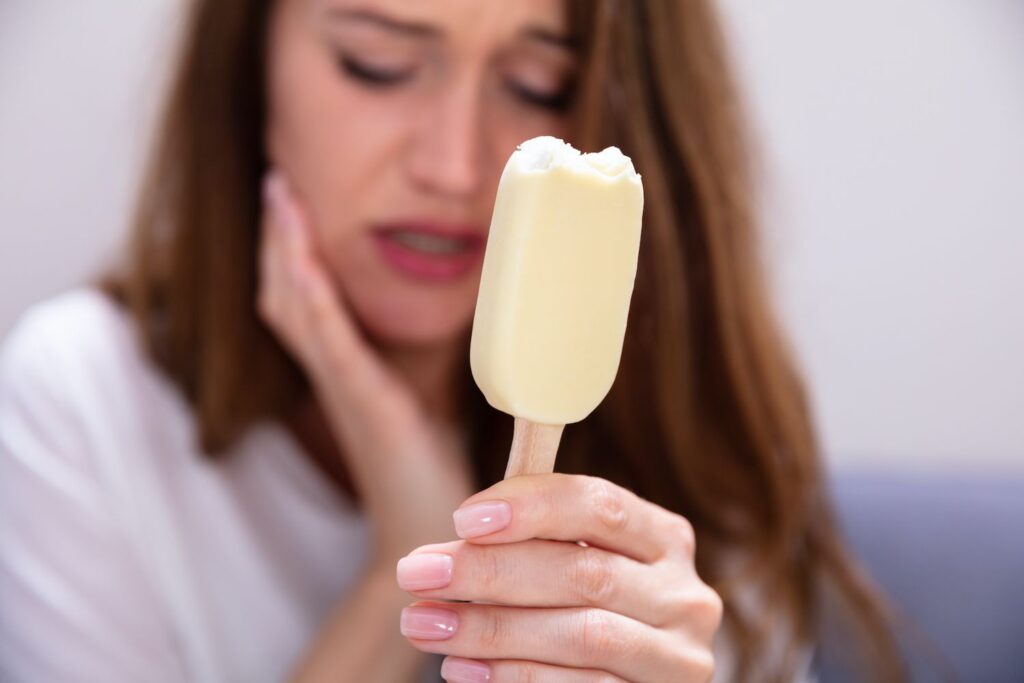Tooth pain of any kind is abnormal and deserves evaluation from a dentist. Tooth sensitivity might occur if you bite into a cold or sugary food, sending a jolt of pain through the tooth. Because this sensation fades soon after stimulation, many people might dismiss this intermittent symptom.
But tooth sensitivity might develop due to serious dental problems that require urgent treatment from a dentist. You can feel encouraged to reach out to your dentist about this issue when you better understand this dental condition. Read on to find responses to frequently asked questions regarding tooth sensitivity, its causes, its treatment, and its prevention.

What Causes Tooth Sensitivity?
The pain from tooth sensitivity occurs when the enamel, the outer layer of the tooth, wears down or erodes to expose the vulnerable interior dentin. Dentin contains nerves, usually covered by protective enamel. When stimulated by external elements like food, the nerves will transmit pain signals to your brain which will dissipate when the stimulation stops.
Enamel can wear down gradually over time or you might have a dental problem like a cavity that will worsen without intervention from your dentist. Regardless of the cause of this dental damage, it will not resolve on its own. You will need help from your dentist to alleviate this symptom.
Can a Dentist Treat Sensitive Teeth?
A dentist can relieve uncomfortable tooth sensitivity pain. But the treatment they provide will depend on the cause of the symptom. Mild tooth sensitivity from enamel loss without other dental complications can be resolved by using a desensitizing toothpaste in some cases. This hygienic product contains ingredients that will block exposed nerves from sending pain signals, stopping sensitivity pain.
Cavities can also cause tooth sensitivity. Drilling away the decay and filling the resulting hole in the tooth will get rid of the cavity and also sensitivity pain.
If you suffer from more extensive enamel loss, your dentist might give you a dental crown to shield the tooth, blocking stimulants from causing you pain. Find the right dental treatment for your specific needs by calling your dentist today.
How Do I Prevent Tooth Sensitivity?
You can reduce your risk of experiencing tooth sensitivity pain when you take proper care of your smile. This includes at-home efforts like good oral hygiene. If you let plaque linger on your smile, it will eat away at your tooth enamel which can cause lasting damage and pain.
The foods and beverages you consume can contribute to enamel erosion too. Try to limit sugary treats and acidic food items like citrus fruits and juices in your diet. The acid from these products can harm your dental structure permanently.
Visit your dentist for routine teeth cleanings to maximize oral hygiene. The dentist performs an exam of your smile too during these appointments. At this time, they can spot potential issues that may cause tooth sensitivity before you experience painful symptoms. Schedule your dental check-up online or by phone.
